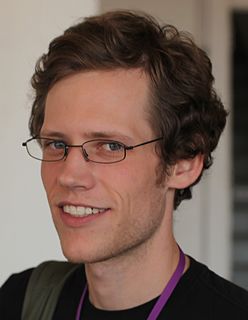A Quote by Sheridan Hay
The books housed in one's first adult bookshelf are the geological bed of who we wish to become
Related Quotes
If I walk into a place, a party, say, and there's a bookshelf, I immediately gravitate toward it. Unless there's a bar. But even then, it's only a matter of a few rounds before I make my way to the bookshelf. If there are good books on it, I may never leave the spot all night. Anybody I really want to talk to is going to make his or her way to that bookshelf sooner or later, anyway, right? Books are a nexus. They start conversations, and they continue conversations, and they make people better conversationalists. I have not found this to be the case with Iron Chef, or even alcohol.
When you talk to people about the books that have meant a lot to them, it's usually books they read when they were younger because the books have this wonder in everyday things that isn't bogged down by excessively grown-up concerns or the need to be subtle or coy... when you read these books as an adult, it tends to bring back the sense of newness and discovery that I tend not to get from adult fiction.
I've published over 100 books - and that is divided about 50/50 adult and young adult. Lately, I have been writing more YA, which is such a great genre to write it. I don't have a favourite (I usually say it's the last book I've written), but certain books do stick in the mind. My very first YA novel, The Children of Lir, will always be special to me, and, of course The Alchemyst because it was a series I'd wanted to write for ages.
































